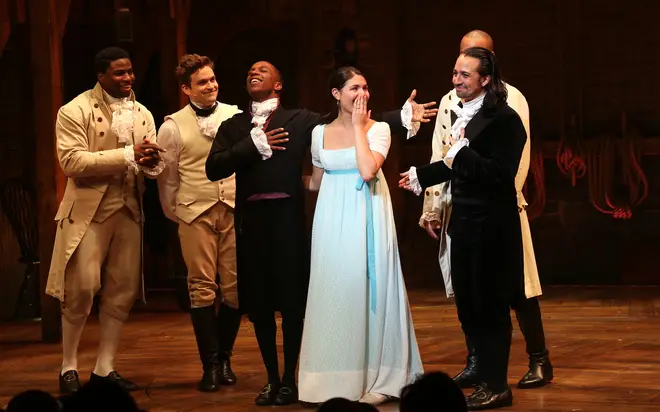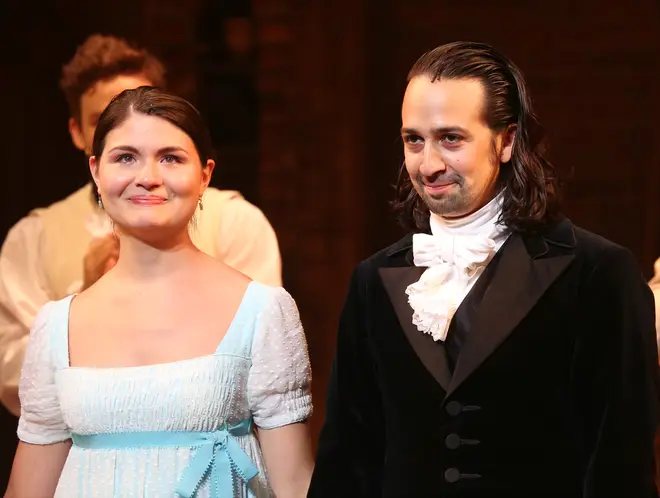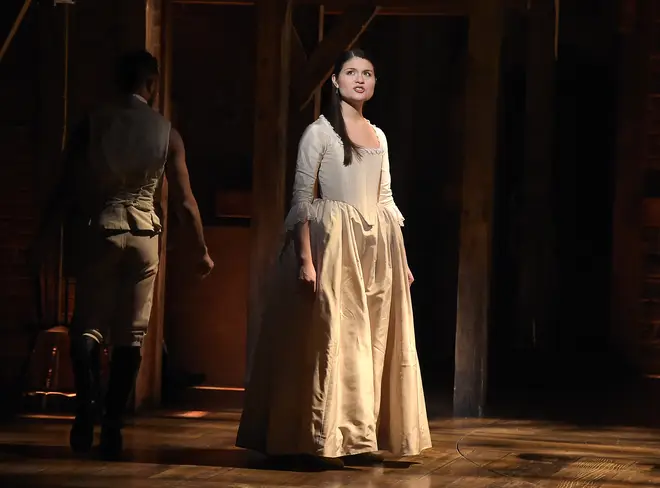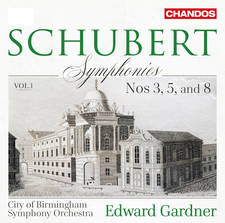Why does Eliza gasp at the end of ‘Hamilton’? Fans are divided, but here’s what Phillipa Soo thinks
8 July 2020, 17:45 | Updated: 9 July 2020, 15:00

After singing the final line of ‘Who Lives, Who Dies, Who Tells Your Story’, Eliza looks out into the audience, sees something shocking and audibly gasps. Then, the curtain comes down on Hamilton. What does it all mean? (Spoilers ahead)
Hamilton. Every time you watch it, you notice something new (“Hamilton wrote the other fifty-one”?! Did I hear that right?). Flicking the subtitles on might not be a bad idea, when you next get round to watching it on Disney Plus.
But it seems that since the original Broadway production of Lin-Manuel Miranda’s hip-hop musical entered our lives, there’s one unspoken passage that’s perplexing everyone: Eliza’s concluding gasp.
What does she see? As actress Phillipa Soo, who plays Eliza, says, “People are like, ‘Is Eliza going into heaven? Is she seeing Alexander? Is she seeing God? What is it?’”.
Here are the most popular fan theories – with added weight from Soo and Miranda.
Read more: How long will ‘Hamilton’ be on Disney Plus? >

Cast of Hamilton surprise girl in zoom call
What happens in the lead-up?
The final chorus, ‘Who Lives, Who Dies, Who Tells Your Story’, is a really beautiful chance to reflect on the way history gets told and passed down. “Every other founding father’s story gets told” – sure, we’ve all heard of George Washington, Benjamin Franklin… so why not Alexander Hamilton?
It’s also a poignant moment to reflect on how we see Eliza, as the one who has kept her husband’s legacy alive. In a way, she has become the true protagonist by passing down the narrative (hey, there’s a reason Miranda just called it ‘Hamilton’...).
Read more: Here are all the classical music references in Hamilton >
After her husband’s death, Eliza explains, she “lives another 50 years”.
She raises funds for the Washington Monument, speaks out against slavery, and establishes the first private orphanage in New York City – helping to raise hundreds of children, after losing her own.
#Hamilton #hamifilm
— olivia | blm (@fallingsolivia) July 3, 2020
eliza: the orphanage
me: pic.twitter.com/Do3luVJLJb
At the end of the song, Eliza sings to Alexander, “I can’t wait to see you again. It’s only a matter of time”.
She walks to the edge of the stage and sees something.
She gasps, tears run down her cheeks – and the curtain comes down.

Here are the popular fan theories on Eliza’s gasp.
She sees Alexander again
The gasp is her last breath, the moment she gets to see Alexander again – just as she hopes for in the final line of the song.
She sees her son
She sees her son, Philip. Eliza has just been singing about how she got to see hundreds of children growing up in her orphanage – as a way, we can assume, to numb some of the pain she felt at losing a son.
I interpreted it as her finally seeing Alexander and Phillip in heaven 🥺
— Anne🌿 (@anne_e22) July 3, 2020
She sees the audience
This is by far the most popular theory. Eliza gasps because she sees the audience and realises her husband’s story is being told in 2020. His story lives on, and she made that happen by telling it.
just a reminder that the gasp eliza makes at the end of “who lives, who dies, who tells your story” is her seeing the audience and realizing that her husband’s story was carried on #Hamilton pic.twitter.com/MahMwGkpcx
— 𝙙𝙚𝙡𝙞𝙡𝙖𝙝 ❂ (@sitharies) July 3, 2020
She sees that HER story is being told
To go one step further, the final gasp could touch on the last time Eliza says ‘Will they tell my story?’ – not your story, my story. Eliza sees the audience, and realises her own part in the story is finally being told.
Fwiw, I’ve always viewed it as her realizing that HER story was carried on. She spent half a century telling the stories of others, which laid the groundwork for the show to exist, and now she has a legacy of her own, as valuable as her husband’s in its own right.
— Nate Stauffer (@n8stauffer) July 3, 2020
Here’s what Phillipa Soo and Lin-Manuel Miranda think.
Phillipa Soo says the fan theories hold some weight – but to her, there isn’t one answer.
Back in 2016, Soo told AOL Build: “People are like, ‘Is it Eliza going into heaven? Is she seeing Alexander? Is she seeing God? What is it?’ And it’s kind of all of those things. Sometimes, it’s literally, I look out and I see the audience, and that’s what it is, but I think, that idea of ‘transcendence’ is present in all of that.

“Whether it's in Eliza’s mind, or in Phillipa’s mind, they’re both one and the same, which is beautiful about that moment.”
Miranda said in a recent Wired interview that he thinks it should be different for every actress who plays Eliza.
“I think it’s different for each Eliza. It’s heart-stopping isn't it? It traverses time in some way. Whether that thing she’s seeing is Hamilton, whether that thing she’s seeing is heaven, whether that thing she’s seeing is the world now. I think those are all valid and all fair. I do think she is seeing across a span of time in that moment.”






















